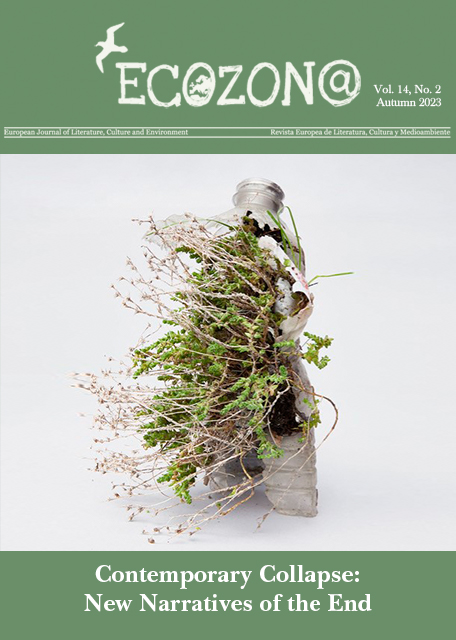Paso del Norte
DOI:
https://doi.org/10.37536/ECOZONA.2010.1.2.369Keywords:
Environmental RacismAbstract
Carlos Morton is a leading Chicano dramatist, who has been writing and producing plays for more than four decades. Among his best-known plays are The Many Deaths of Danny Rosales (1983) and Johnny Tenorio (1992). In addition to his work for the stage, which has been widely produced, he has written for television and radio, and taught at universities in Texas, California, and Mexico (he holds a PhD from the University of Texas, Austin). When he started his career, at the end of the 1960s and the start of the 1970s, his enthusiasm was sparked by the political theatre produced by Teatro Campesino and the San Francisco Mime Troupe. His work has since adopted a wider variety of styles and themes: evoking historical events, myths, biblical stories, and contemporary political issues, such as racism and machismo, interweaving realism with fantasy. But he always addresses a Chicano audience, and exposes the oppression of Chicano and Latino people. He is currently Professor of Theater at the University of California at Santa Barbara.
Downloads
Published
Issue
Section
License
Authors who publish with this journal agree to the following terms:
a) Authors retain copyright and grant the journal right of first publication with the work simultaneously licensed under a Creative Commons Attribution License that allows others to share the work with an acknowledgement of the work's authorship and initial publication in this journal (CC BY-NC for articles and CC BY-NC-ND for creative work, unless author requests otherwise.
b) Authors are able to enter into separate, additional contractual arrangements for the non-exclusive distribution of the journal's published version of the work (e.g., post it to an institutional repository or publish it in a book), with an acknowledgement of its initial publication in this journal.
c) Authors are permitted and encouraged to post their work online (e.g., in institutional repositories or on their website) prior to and during the submission process, as it can lead to productive exchanges, as well as earlier and greater citation of published work (See The Effect of Open Access).










